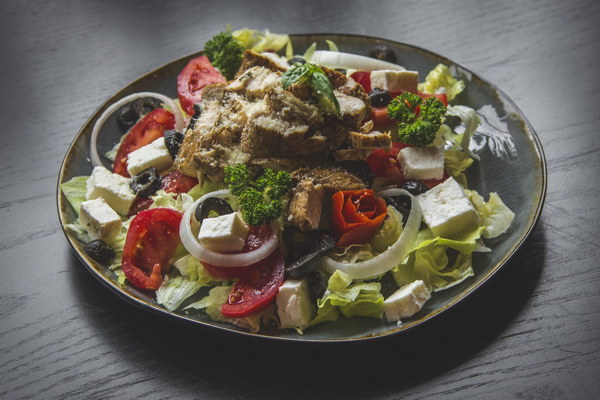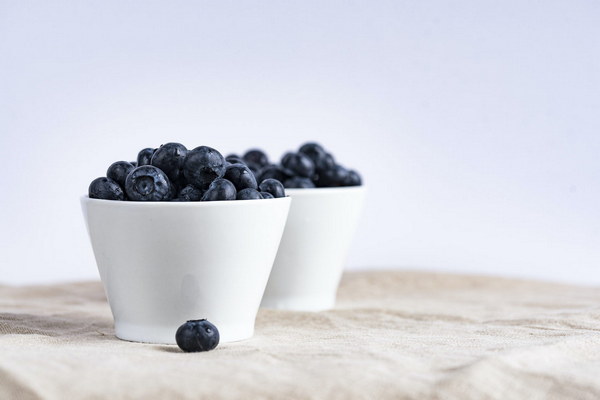Nourishing Your Stomach and Strengthening Your Spleen The Wonders of DigestiveSpecific Grains
Nourishing Your Stomach and Strengthening Your Spleen: The Wonders of Digestive-Specific Grains
In the pursuit of health and vitality, our diet plays a pivotal role. Among the numerous food groups, grains have been a staple for centuries, providing essential nutrients and energy. However, not all grains are created equal, especially when it comes to supporting our digestive system and spleen health. In this article, we delve into the wonders of digestive-specific grains that can help nourish your stomach and strengthen your spleen.
Understanding the Stomach and Spleen
In traditional Chinese medicine (TCM), the stomach and spleen are vital organs that play a crucial role in maintaining overall health. The stomach is responsible for breaking down food and absorbing nutrients, while the spleen is in charge of transforming these nutrients into energy and ensuring proper blood circulation.
When these organs are functioning optimally, we experience good digestion, a strong immune system, and overall well-being. However, when the stomach and spleen are weakened, we may suffer from various health issues, such as bloating, gas, fatigue, and weakened immunity.
Digestive-Specific Grains: A Spleen-Friendly Solution
Digestive-specific grains are a group of grains that are particularly beneficial for nourishing the stomach and spleen. These grains are rich in nutrients, easy to digest, and can help alleviate common digestive issues. Here are some of the most notable digestive-specific grains:
1. Brown Rice
As a staple in many Asian diets, brown rice is a whole grain that contains all three parts of the grain kernel: the bran, germ, and endosperm. It is rich in fiber, which helps to promote healthy digestion and prevent constipation. Additionally, brown rice is a good source of B vitamins, magnesium, and selenium, all of which contribute to the proper functioning of the stomach and spleen.
2. Oats
Oats are another excellent source of fiber, particularly beta-glucan, which has been shown to improve gut health and reduce cholesterol levels. Oats also contain a unique type of fiber called arabinoxylan, which can help regulate blood sugar levels and support the immune system. Furthermore, oats are rich in protein and B vitamins, which are essential for maintaining a healthy stomach and spleen.
3. Quinoa
Quinoa is a gluten-free grain that is packed with nutrients, including protein, fiber, iron, magnesium, and B vitamins. Its high protein content makes it an ideal choice for those with weakened spleen function, as it can help build and repair tissues. Quinoa also has a low glycemic index, making it a great option for maintaining blood sugar levels and promoting digestive health.
4. Barley
Barley is a nutritious grain that has been used for centuries to support digestive health. It is rich in beta-glucan, just like oats, and also contains a variety of vitamins and minerals. Barley can help reduce cholesterol levels, lower blood sugar, and promote healthy digestion. Additionally, barley has a soothing effect on the stomach lining, making it an excellent choice for those with sensitive stomachs.
5. Millet
Millet is a versatile grain that comes in several varieties, each offering unique health benefits. It is rich in fiber, protein, and B vitamins, which are essential for maintaining a healthy stomach and spleen. Millet is also a good source of minerals such as magnesium, phosphorus, and potassium, which can help reduce inflammation and support overall health.

Incorporating Digestive-Specific Grains into Your Diet
To enjoy the health benefits of digestive-specific grains, it's important to incorporate them into your diet in a variety of ways. Here are some ideas:
- Brown Rice: Use brown rice as a base for salads, stir-fries, or as a side dish with lean proteins and vegetables.
- Oats: Start your day with a bowl of oatmeal topped with fresh fruits, nuts, and seeds, or add oats to smoothies for an extra fiber boost.
- Quinoa: Use quinoa as a replacement for rice or pasta in your favorite recipes, or combine it with vegetables and lean proteins for a nutritious meal.
- Barley: Add barley to soups, stews, or salads for a hearty and satisfying meal.
- Millet: Use millet as a side dish or in porridge, or combine it with legumes for a protein-rich meal.
In conclusion, digestive-specific grains are a valuable addition to any diet, particularly for those looking to nourish their stomach and spleen. By incorporating these grains into your daily meals, you can support your digestive health, enhance your immune system, and enjoy a greater sense of well-being. So, why not start exploring the wonders of these









